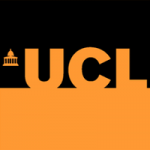项目介绍
Overview
The DEdPsy facilitates an understanding of the role of Educational Psychologists (EPs) as applied psychologists working with children and young people, their families and allied professionals. It introduces trainee EPs to the most recent developments in educational psychology and professional practice and promotes high level research skills. The location of the DEdPsy at the UCL Institute of Education (IOE) provides trainee EPs with the opportunity to engage in research alongside world leaders in the fields of education and psychology, including staff from the Centre for Research in Autism and Education and the Thomas Coram Research Unit.
Research areas
Trainee EPs on the DEdPsy have contributed to national research led by Professor Peter Blatchford, which investigated the impact of statements of special educational needs on children’s educational progress. They have also worked on research funded by the Office of the Children’s Commissioner, alongside Professor Elizabeth Pellicano and Vivian Hill, investigating how the rights of children attending residential special schools are protected and promoted.
Other research has included: evaluations of interventions to support children’s mental health, including CBT; the influences of gang culture on childhood; investigations into the diagnosis and management of ADHD; explorations of the experiences and educational outcomes of Looked After Children; support for young offenders; the influences of ITC and social media on childhood development; literacy and language development interventions; children’s friendships; sensory impairments; SEN and inclusion issues and much more.More information can be found on the department website: Educational Psychology (Professional Educational, Child and Adolescent Psychology) DEdPsy
About this degree
Trainee EPs work alongside their professional EP tutors and academics to develop professional competency and outstanding research skills and expertise.
The DEdPsy comprises three main elements:
- taught modules
- professional practice placements
- research-based thesis
The teaching of modules is provided by an outstanding team of applied educational psychologists and world-class academics. The pedagogy is informed by innovative practice including video-enhanced reflective practice (VERP) and video interactive guidance (VIG). We use skills labs activities to develop professional practice skills and and problem-based learning activities, in the form of contextualised psychological analysis, to develop evidence-informed practice and holistic conceptualisations of the multiple systems and variables influencing presenting issues and concerns for service users.
Trainees’ research is jointly supervised by a professional EP tutor and an academic psychologist. Trainees have the freedom to select their research topic based on personal interest, the interests of a placement provider, or they may decide to contribute to research priorities of the department. The thesis study will make a distinct contribution to the professional knowledge base and will support the development of policy and practice. Trainees are supported to present their studies at national conferences and to publish their findings.
Please note that the list of modules given here is indicative. This information is published a long time in advance of enrolment and module content and availability is subject to change.
Fieldwork
For all trainees, the first year of training is primarily based within the University, with placements provided in linked Local Authorities and supervised by IOE Placement Tutors. These Educational Psychology Services are located in inner and outer London, and the Home Counties. A small group of trainees will be placed in each service, with placements allocated in order to minimise travel time as far as possible.
Placement
In years 2 and 3 the majority of overseas or EU trainees undertake an unpaid placement in a UK Educational Psychology Service, supervised by one of the IOE programme tutors. In exceptional circumstances, overseas/EU trainees organise a placement of 260 days (approximately 3 days per week) for years 2 and 3 in their home country. The placement will need to be arranged with a supervisor who is eligible for Chartered Educational Psychology status with the British Psychological Society (or equivalent with the Psychological Society of your home country). All IOE teaching must be attended.
Additional costs
This programme requires a completed DBS check for some compulsory modules. You will receive more information from UCL on how to complete the check once you have firmly accepted an unconditional offer for the programme. The DBS application cost will be covered by UCL, but offer holders will also need to have their ID checked and verified at a Post Office, for which they will incur a charge of £12.75. The offer holder is also required to arrange and pay for any overseas police check that may be necessary; costs vary by country. For more information about the DBS application process, please contact the Admissions team.
For more information on additional costs for prospective students please go to our estimated cost of essential expenditure at Accommodation and living costs.
Accessibility
Details of the accessibility of UCL buildings can be obtained from AccessAble accessable.co.uk. Further information can also be obtained from the UCL Student Support & Wellbeing team.
Funding
For a comprehensive list of the funding opportunities available at UCL, including funding relevant to your nationality, please visit the Scholarships and Funding website.
Careers
All of the DEdPsy graduates to date, have secured posts as educational psychologists. Those who take up a UK government-funded bursary are required to work in an English local authority children’s service for a minimum of two years after qualification.
Employability
Trainee EPs successfully completing the programme meet the professional competency requirements set out by the HCPC and BPS. As such they are entitled to register with the HCPC for the protected title of Practitioner Psychologist and to apply for chartered status with the BPS. Graduates are able to apply for posts as practising educational psychologists in local authority children’s services.
Networking
Within the Department of Psychology and Human Development there are a wide range of seminars which provide networking opportunities. Some taught sessions are held jointly with other DEdPsy programmes and enable trainees to meet with Trainee EPs from other programmes. There are also sessions that are shared with trainee clinical psychologists and speech and language therapists. Trainee EPs are also encouraged to attend and present their research at the annual national conference for trainee EPs hosted by the BPS Division of Educational and Child Psychology and to work alongside their supervisors to publish their work.
Why study this degree at UCL?
The DEdPsy programme at the IOE provides a unique context in which to train as an educational psychologist. The location of the programme in the Department of Psychology and Human Development, within the world’s leading centre for Education research, provides our trainees with access to outstanding teaching within the disciplines of psychology and education, taught by world leaders in their fields.
Our trainees have the opportunity to develop their research expertise under the supervision of leading researchers. Trainee EPs may pursue their own research interests or contribute to major national research projects that help to shape national and international policy and practice. Accreditation reports have highlighted the strengths of the programme in facilitating creative developments and innovative practice within the profession and in promoting the synthesis of theory and practice.
The programme has a long-standing and distinguished profile in the profession and has an excellent team of applied educational psychologists from services across London and the home counties. The focus of the programme is to consider the influences of different systems and contexts on children and young people based on Bronfenbrenner’s eco systemic model.
Department: Psychology & Human Development
Application and next steps
Applications
Students are advised to apply as early as possible due to competition for places. Those applying for scholarship funding (particularly overseas applicants) should take note of application deadlines.
This programme requires two references. Further information regarding references can be found in our How to apply section.
Application deadlines
DFE funded places2 December 2020Overseas applicants7 May 2021
Applicants for DFE funded places should check the AEP website for eligibility.
All UK applications for either a government funded bursary place, or for a self-funding place should be made via the Educational Psychology Funded Training (EPFT) Scheme on the Association of Educational Psychologists (AEP) website in the Autumn Term. The deadline is usually in late November of each year for references and early December for completion and submission of the full application. The AEP website is regularly updated to give deadline dates for the application process. Applicants are strongly advised to check this website for up-to-date information.
EU/Overseas applicants who are not eligible for UK funding should submit their application online via the Apply now button below. To find our programme easily, enter ‘DEdPsy’ as the search keyword. The unique code for this programme is DDYEDUSCAP01. Please note that you do not need to put the name of a proposed supervisor or research area on the application form.
For more information see our Applications page.
录取要求
-
A minimum of an upper second-class Bachelor’s degree in Psychology from a UK university or an overseas qualification of an equivalent standard. Candidates should also have experience of working with children and young people from birth to age 25, across a diverse range of employment contexts. Candidates must hold evidence from the Disclosure and Barring Service (DBS) of suitability to engage in direct work with children.
联系方式
电话: +44 (0) 20 7679 2000相关项目推荐
KD博士实时收录全球顶尖院校的博士项目,总有一个项目等着你!





